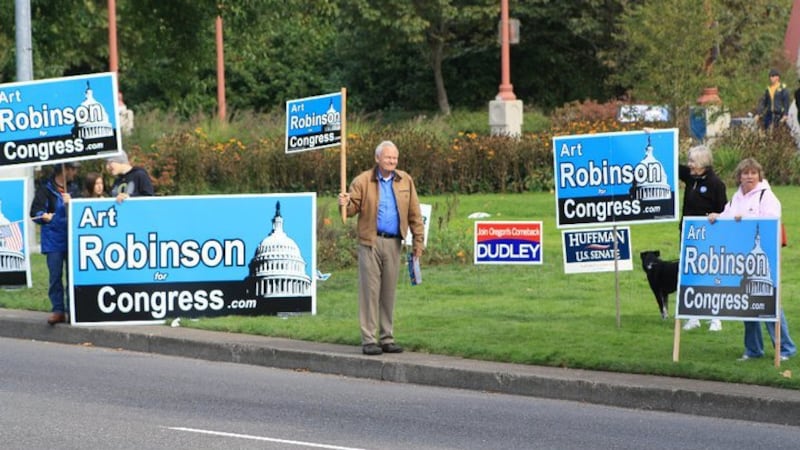The Washington Post reported March 25 that Cambridge Analytica—the London-based political data firm that allegedly harvested private data from millions of Facebook users to boost the Trump campaign—helped advise Oregon Republican congressional candidate Art Robinson in 2014.
Cambridge Analytica's task, according to a company document?
"Rehabilitating Dr. Robinson's image with voters by presenting him as a sympathetic family man and serious scientist rather than as the extremely right-wing, unstable 'mad scientist' caricature created by the opposition over the previous two campaigns."
Robinson—a Cave Junction sheep rancher, climate-change denier and biochemist who once said he collects and studies urine in an attempt to find ways of extending human life spans—was making a third bid for Congress.
The report raises new questions about foreign nationals working in American campaigns.
"I don't think there's anything to the legal matter," Robinson tells WW. "The issue is whether [foreign nationals] worked on the campaign or managed it. Cambridge Analytica didn't manage work for us, they did political targeting."
He adds, "I didn't know the citizenship of the people working on the campaign. They didn't appear to be foreigners."

Robinson, who lost to U.S. Rep. Peter DeFazio (D-Oregon), says he paid Cambridge Analytica $20,000.
He says in 2014, Cambridge Analytica did not own any Facebook data that he knew about. "I don't think people's private data should be revealed in that way," Robinson says.
Robinson says that Campbridge Analytica was using his campaign as an education about U.S. politics.
"Cambridge Analytica was set up as the American subsidiary of a British company, SCL," Robinson told WW via phone. "In 2014, [Cambridge Analytica] chose four states—Oregon was one—to come and learn about American politics so they could work in later elections."
